Sometimes, we all need a helping hand. And sometimes, that helping hand can come from unexpected places. A friend or neighbor, sure, a coworker, even a stranger. Sometimes, it can also come from a song or a movie, a piece of art, or even a book, as is the case with these seven titles.
There are many ways that art can help us to cope with trauma. It can remind us of how things will get better, give us tools that we can use to work through the times that aren’t so good, provide context, or even just remind us that things could always be a whole lot worse. Sometimes, books can help us see how others have navigated similar waters to those we find ourselves in, provide insights that show our problems in a new light, or help us see our way through a long, dark night.
From memoirs to clinical studies, these seven books come from a variety of genres, tackle a variety of subjects, and utilize a variety of approaches. What they all have in common is that, directly or indirectly, from personal experience or a clinical viewpoint, they deal with trauma—and they just might help you deal with trauma, as well.
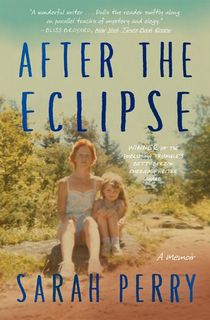
After the Eclipse
When Sarah Perry was just twelve years old, she witnessed a partial solar eclipse. Within two days, her mother was murdered in their home, and Sarah began a journey that would both unmake and reshape her life. With her grief complicated by the police investigation that took twelve years to find her mother’s killer, Sarah found herself waiting for the trial that she thought would bring her closure.
When it finally came, however, she realized that what she was looking for wasn’t the identity of her mother’s killer—it was the shape of her own life. The quest to unravel that mystery would take her back to her hometown in this mixture of memoir and suspense that, “Pull[s] the reader swiftly along on parallel tracks of mystery and elegy.” (New York Times Book Review)
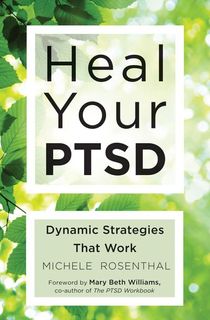
Heal Your PTSD
Recovering from trauma is a journey that is different for every person. Fortunately, authors like Michele Rosenthal—who experienced her own struggles with post-traumatic stress disorder following a serious illness—have gone on to become experienced post-trauma coaches.
In this trauma book Rosenthal helps to share with readers not only what worked for her, but strategies and exercises developed to help people cope with all kinds of trauma through self-help measures, mindfulness, meditation, and more.
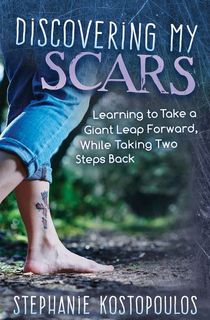
Discovering My Scars
Trauma can take many different forms, and it can often be difficult for us to cope when our own struggles don’t look the way we think they “should.” Stephanie Kostopoulos struggled with non-suicidal self-injury, which led her to 74 hours in a psychiatric ward after a traumatic day in her college dorm room.
Her experiences there started her on a road to recovery, and in this memoir, she depicts both her struggles and her triumphs in visceral prose. For her, recovery meant self-forgiveness and finding “God’s grace and revelation,” but one thing that this book tries to do is show everyone that it’s okay for them to discover their own scars, and their own way to recovery.
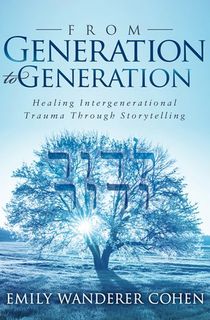
From Generation to Generation
Intergenerational trauma is something that can be difficult to cope with. Often, because we don’t see the trauma as having happened directly to us, we feel that it is somehow less legitimate.
In this book, Emily Wanderer Cohen looks at intergenerational trauma through the lens of her own family, who survived the Holocaust, and uncovers lessons that can be applied to intergenerational trauma of all kinds to help survivors and their children and grandchildren heal.
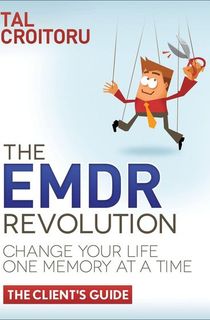
The EMDR Revolution
It’s been called “the fastest evidence-based therapy there is,” and while there is still considerable skepticism and controversy around Eye Movement Desensitization and Reprocessing therapy, even its critics acknowledge that at least some aspects of it work.
Whether you’re a believer or a skeptic or simply want to learn more about one of the only evidenced-based therapies currently in widespread use, this book will guide you through the background, the theory, and the practice of EMDR therapy and how it might help you to “rewire” your memories to deal with past trauma.

The Body Keeps the Score
Do a search for “books about trauma,” and you’ll find this #1 New York Times bestseller on the top of just about every list. Based on extensive clinical study, it’s been called, “Essential reading for anyone interested in understanding and treating traumatic stress and the scope of its impact on society,” by Alexander McFarlane, Director of the Centre for Traumatic Stress Studies at the University of Adelaide.
Rather than a how-to book, this is a “why” book, exploring the way that trauma actually reshapes the body and brain. By giving a clearer understanding of what trauma is and how we experience it, we can gain a sense of equilibrium that can be so crucial when trying to survive in a world that often feels topsy-turvy.

It Didn't Start With You
We already included a title tackling intergenerational trauma, but Mark Wolynn’s “groundbreaking book” takes the idea a step further, suggesting that our own traumas might not always be reflective of our own lived experiences, but literally inherited through everything from gene expression to everyday language.
Using research from some of the leaders in the field, including Mount Sinai School of Medicine and the authors of some of the other books on this list, Mark Wolynn not only pens a “compelling understanding of inherited trauma” but also offers “fresh, powerful tools for relieving its suffering,” according to Tara Brach, author of Radical Acceptance. Even for those who are dealing with trauma that is directly tied to their own lived experience, understanding the ways that trauma might pass through generations can be a helpful tool to recognizing and understanding its impact on our own lives.


